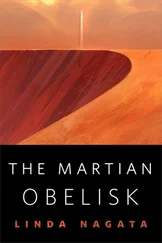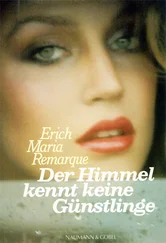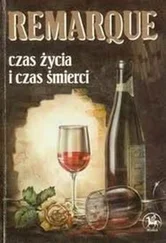Eduard made a lightning calculation, counting in Valentin as well as the poem about Valentin in my pocket. “Three,” he says.
Willy is sitting in a small room. He has exchanged his elegant apartment for this. It is a terrific fall in the world, but Willy is bearing it well. He has saved his suits, and some of his jewelry; with these he will be able to play the elegant cavalier for some time to come. The red car had to be sold. He had speculated too recklessly on continued depreciation. The walls of his room are papered with notes and worthless bonds of the inflation. “It was cheaper than wallpaper,” he explains. “And more entertaining.”
“And now?”
“I’ll probably get a small job in the Werdenbrück bank.” Willy grins. “Renée is in Magdeburg. She writes that she’s having a big success in ‘The Green Cockatoo.’”
“It’s nice that she goes on writing at least.”
Willy makes an expansive gesture. “None of it matters, Ludwig. Out of sight, out of mind! Besides, for the last month I haven’t been able to persuade Renée to play the general at night. So it was only half the fun. The only time lately that she shouted a command was during that memorable battle at the pissoir in New Market. Farewell, youth! As a going-away present—” he opens a bag full of bonds and paper money. “Take anything you like! Millions, billions—it was a dream, wasn’t it?”
“Yes,” I say.
Willie accompanies me to the street. “I’ve saved a few hundred real marks,” he whispers. “The fatherland is not yet lost! Now it’s the turn of the French franc. I’m going to speculate on its falling. Would you like to take a small flier with me?”
“No, Willy. From now on I’m only speculating on rises.”
“Rises,” he says as though he were saying Popocatepetl.
I am sitting alone in the office. It is my last day. I am leaving tonight. As I leaf through a catalog, wondering whether to include Watzek’s name on one of the tombstones I have drawn, the telephone rings.
“Are you the one called Ludwig?” a husky voice inquires. “The one who used to collect frogs and slowworms?”
“Could be,” I reply. “It depends on the reason. Who’s speaking?”
“Fritzi.”
“Fritzi! of course it’s me! What has happened? Has Otto Bambuss—”
“The Iron Horse is dead.”
“What?”
“Yes. Last evening. Heart attack. While at work.”
“A beautiful death,” I say. “But too young!”
Fritzi coughs. Then she says: “You’re in some sort of monument business, aren’t you? You told me about it once!”
“We have the best monument business in the city,” I reply. “Why?”
“Why? My God, Ludwig, I’ll give you three guesses! The Madame naturally wants to give the order to a client. And, besides, it was on the Iron Horse that you—”
“Not I,” I interrupt. “But possibly my friend Georg—”
“No matter, a client is to have the order. Come on out here! But come soon! A salesman for your competitors has been here already—he kept weeping and saying it was on the Horse that he—”
Weeping Oskar! Not a doubt of it! “I’m coming at once!” I say. “That blubberer was lying!”
The Madame receives me. “Do you want to see her?” she asks.
“Is she laid out here?”
“Upstairs, in her room.”
We go up the creaking stairs. The doors are open. I see the girls getting dressed. “Are you going to be open tonight?” I ask.
The Madame shakes her head. “Not tonight. The ladies are just getting dressed anyway. Habit, you know. Being closed is no great loss. Now that the mark is the mark again, our business has gone to pot. All the sinners are broke. Funny, isn’t it?”
It is not funny; it is true. The inflation has turned straight into deflation. Where billions are once thrown about, calculations are again being made in pfennigs. There is a general shortage of money. The horrible carnival is over. A spartan Ash Wednesday has come.
The Iron Horse lies on her bier among green potted plants and lilies. Her face is now severe and old; I recognize her only by one gold tooth just visible at one corner of her lips. The mirror, in front of which she has so often made up, is hung with white tulle. The room smells of stale perfume, evergreens, and death. On the bureau stand a few photographs and a crystal ball, with one flat side where a picture is glued. If you shake the ball the people in the picture look as if they were in a snowstorm. I know it well; it is one of the finest memories of my childhood. I longed to steal it in the days when I used to do my schoolwork in Bahnstrasse. “She was a kind of stepmother to you, wasn’t she?” The Madame asks.
“Say rather a kind of mother. Without the Iron Horse I would probably have become a biologist. But she loved poems; I had to keep bringing her new ones and finally I forgot about biology.”
“That’s right,” says the Madame. “You always had salamanders and fishes with you!”
We go out. On the way I see the Cossack cap lying on the dressing table. “Where are her high boots?” I ask.
“Fritzi has them now. Fritzi is no longer interested in anything else. Wielding the whip is less exhausting. And brings in more. In fact, we’ll soon have to find an understudy. We have quite a little circle of clients for a strenuous masseuse.”
“How did it really happen to the Horse?”
“In line of duty. She always took too much interest in the matter, that was the real reason. We have a one-eyed Dutch businessman, a very fine gentleman; he doesn’t look the part at all but the only thing he wants is beating and he comes every Sunday. Crows, when he’s had enough, like a rooster, very droll. Married, has three sweet children, but can’t, of course, order his wife to beat him—so he’s a permanent client, with foreign exchange in his wallet, pays in gulden—we almost worshiped that man—and his valuta. Well, so that’s how it happened yesterday. Malvina got too excited—and suddenly she fell over, whip in hand.”
“Malvina?”
“That’s her first name. You didn’t know, did you? What a shock for the gentleman to be sure! He won’t come again,” says the Madame woefully. “What a client! Pure sugar! We could always buy meat and baked stuffs for a whole month with his foreign exchange. How does it stand now, by the way?” She turns to me. “Not worth what it used to be, is it?”
“A gulden is worth just about two marks.”
“Is it possible! And a little while ago it was worth trillions! Well, then it’s not so bad even if our client should stay away. Won’t you take some trifle with you as a memento of the Horse?”
For a moment I think of the glass ball with its snowstorm. But one oughtn’t to carry along keepsakes. I shake my head.
“All right,” says the Madame. “Then we’ll have a nice cup of coffee downstairs and pick out the monument.”
I have been figuring on a small headstone, but it turns out that, thanks to the Dutch businessman, the Iron Horse had amassed considerable savings. She put the gulden notes away in a strongbox. Now they represent an impressive sum. The businessman has been her loyal client for years. “Malvina had no family,” the Madame says.
“Then of course,” I reply, “we can turn to the important class of Tombstones. Marble or granite.”
“Marble is not the thing for the House,” Fritzi says. “That’s more for children, isn’t it?”
“Not always, by any means! We have laid generals to rest under marble columns.”
“Granite,” says the Madame. “Granite is better. Suits her iron nature.”
We are sitting in the big room. The coffee is steaming, there are home-baked cakes with whipped cream and there is a bottle of curacao. I feel almost as though I had been spirited back to the old times. The ladies are looking over my shoulder at the catalogue just as they used to look at my schoolbooks.
Читать дальше








